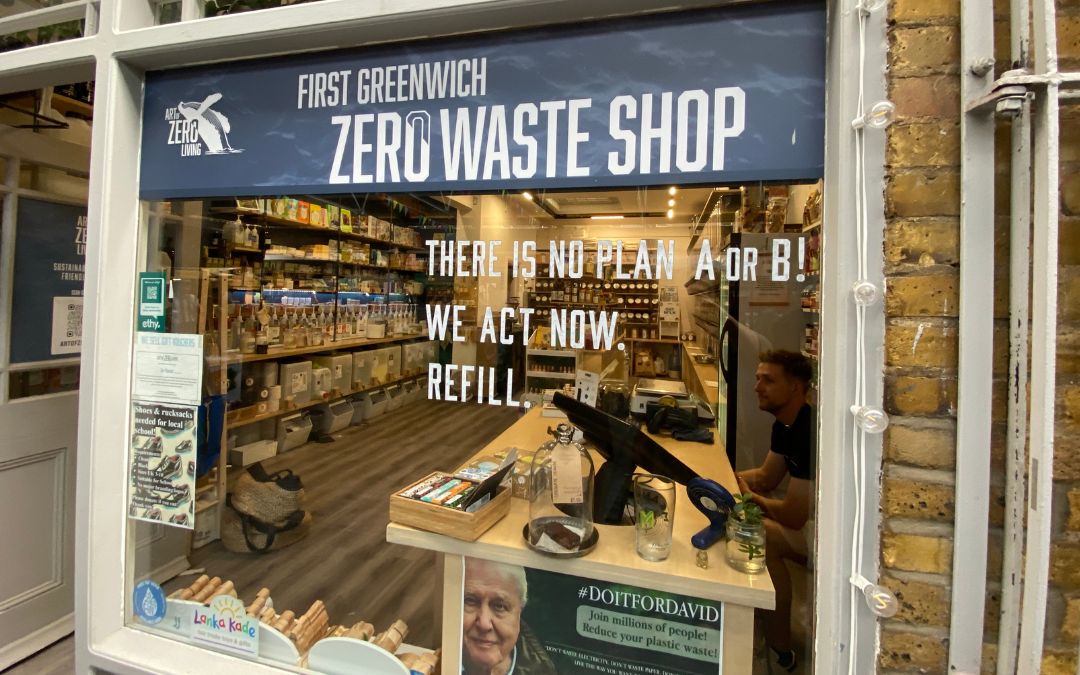Sustainability – the new buzz word in the UK and Europe

In July, August and September, my husband Paul and I travelled extensively in the UK and Europe. We were amazed and pleased with the emphasis on climate change action everywhere we went. We could not look side ways without seeing the word ‘sustainability’ or hearing of drastic actions being taken to reduce carbon emissions. We were left in no doubt that Australia is seriously dragging its feet in this regard.
Our first port of call was Oxford which achieved zero carbon emission in the city centre almost overnight by simply banning passenger vehicles entering the city limits. This is supported by a solid Park and Ride scheme where commuters park at large facilities on the outskirts that also house a bus station. Frequent buses then deliver commuters to Oxford city. London buses terminate at one of the Park and Rides too.
In February 2021, the Zero Oxford Partnership was formed following the Zero Carbon Oxford Summit and included leaders from all sectors. This led to the Oxford Action Plan which aims to reach Zero Carbon across Oxford by 2040, 10 years ahead of Government legal requirements.
The Action Plan is detailed and monitored constantly and includes ‘retrofitting council homes, delivering a biodiversity strategy, supporting transformative energy systems and projects, and lobbying the government to raise energy efficiency standards in the private rented sector.’ What is so good about the strategy is the inclusiveness of it and the decisive action of all sectors and that it is not dependent on Council, but is a real partnership. This is not a lip service response to climate change as evidenced by a fair bit of discomfort of residents who have found some of the changes disruptive. If we are not inconvenienced however we will not achieve zero carbon.
Across small and large towns in the UK we observed the private sector as well as the public sector advertising what each is doing to be sustainable and reduce emissions e.g. buildings being erected with large signs saying that ‘this building is carbon neutral’ or ‘x amount of carbon saved by retrofitting’.
London was a complete eye opener about what can be done when the need is urgent and everyone gets on board. We travelled by bus and train for 3 weeks and the first thing to say is that the public transport system is amazing. We generally walked straight onto a train – underground or overground – and probably the longest wait was 2 -3 minutes very occasionally. Every train advertises the significant contribution to carbon emission reduction as do buses and many businesses. The double-decker bus fleet is being replaced with electric buses with 1600 of 9000 in operation so far and will be completely electric by 2034.
There has been an expensive (over A$30 per day) congestion tax for bringing cars into London since 2003 and this has reduced the traffic considerably since we were last there 14 years ago, and of course, emissions. Electric delivery vans and maintenance vehicles are everywhere and proudly display their electric status in large letters on their vehicles. Cycling is extremely popular (albeit generally helmet-less!). It is also quick and cheap. Private pods for bicycle storage are on many London residential streets with car parking spaces taken over for them.
Everything from paper shopping bags to clothing have signs that they are recycled or can be reused and implore people to do that. Clothing recycling is quite an industry with a huge number of charity shops (especially in regional centres) and vintage and retro shops. It is quite the in-thing to wear recycled clothes whose presentation and quality is high.
London’s mayor, Sadiq Khan, has set a goal for zero emissions in London by 2030 and has adopted the Accelerated Green Pathway to do this which includes divesting London Pension Funds of fossil fuels and establishing a London Climate Financing Facility to assist getting to net zero. There is also a focus on how to cut emissions from goods that come from outside London whether locally or abroad.
The true leaders of today are taking action, however uncomfortable for their citizens, to reach net zero as early as possible and way ahead of government legislation. It is up to us to sacrifice, sit with our discomfort and get on board not only in our own homes but also in spreading the word, encouraging and teaching others, and supporting our Local Councils, State Governments and Federal Government as well as the private sector, in the mammoth task of defeating climate change.
Footnote:
1. www.oxford.gov.uk/climate-emergency/zero-carbon-oxford
References:
Zero Carbon Oxford
Written by Robin Gale-Baker
